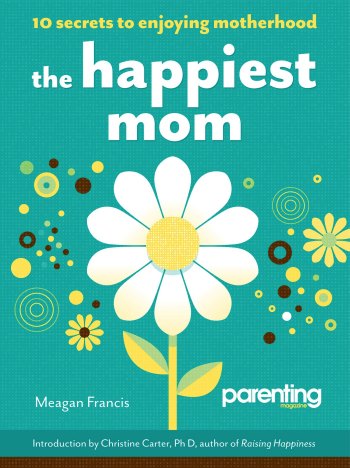Someone asked me to review an app called “Let it Go.” Basically you write down what’s bothering you like, “I like the smell of skunk. Is there something very wrong with me?” and “I wish my dog would stop sniffing my butt. It really bothers me when she does that. The fact that she continues to do it makes me feel so unheard!”
Then the app releases those thoughts for you.
Exactly how it works is unclear because I don’t actually own the app. I’ve only read an email about it. I thought about trying it out. But then I looked around my living room. There are no curtains. The furniture is all gone, too. The corners of all the walls are covered in blue tape.
The only thing in this room is my desk, my computer, and my chair.
The room is so empty that there’s an echo every time I type anything on the keyboard.
My husband is painting, you see. He’s also still painting the child’s bedroom. And the hallway. And the dining room.
When he told me weeks back that he was going to paint I believe my exact words were, “Please don’t.”
“It won’t take long,” he said.
“That’s what you said about the child’s bedroom. You’ve been not painting it since before Halloween.”
“But we already moved all the furniture so we could have the floors redone. Now is the perfect time to paint,” he said.
I thought about saying, “Now is the perfect time to paint for people who actually paint when they say they are going to.” Instead I said, “How about we hire people to do it!?”
“Nah, I can do it,” he said.
I sighed. I already knew how this was going to go. “Okay, fine,” I said. “But don’t you dare set up the television until you’re done painting.”
Then I went to the store and I ordered this self massaging heated recliner that I’ve always wanted, and I had it delivered. It’s now the only other piece of furniture in this room other than my desk and my desk chair.
Some other wife would probably be livid over this the-house-still-isn’t-painted situation. Every time she needed an envelope and realized that she couldn’t find one because all the envelopes are packed away inside of some box that is under other boxes out on the porch where the rest of the things that used to be inside her house now reside, she would probably spank her husband with a paint brush, assuming she could fine one.
Not me. Over the years, with much meditation, I’ve become a master Let-It-Goer. If I can’t find an envelope, this is what I do: I ask my husband to find it for me. And then I go sit in my massage chair.
All better.
You envy me, don’t you? At the start of this story, you never in a million trillion years thought you would, but envy me you do. Everyone should have a heated, self massaging recliner.
Seriously, if every person in the world owned one, there would be world peace.
At the very least, there would be marital peace. I’m living proof.
Oh, sure, I could yell about the fact that I can never find anything when I need it because everything that I own is in storage. I could complain that I can’t walk around my house naked without all the neighbors saying, “Oh, so that’s what a woman’s middle aged body looks like!” I could gripe how the dog has been breaking into her food container ever since my husband removed the doors to the closet that houses the food.
But why bother? None of those things are going to get this house painted.
So rather than get irritated, I’m amused. It’s funny, you know? It’s especially funny when I have people over. Then I can say things like, “Well, I’d offer you a seat, but as you can see…” and “Okay you get the massage chair for 15 minutes. Then you have to give someone else a turn” and “Well we could eat dinner here standing up or we could go out. Your call.”
I’m also curious. How long can the man survive without the TV? What will be the event that motivates him to paint the whole house in just a couple hours? Will it be the Florida vs. Florida State game in the fall? The Tour de France in the summer? Or something much sooner? The Super Bowl perhaps?
And I’m thankful. My husband might take a whole year — or a decade — to paint a house, but he fills my car with gas so I don’t have to. It’s been an average of 3 degrees here for the past week, and I’m not talking about Celsius. Let’s just say that if I had a choice of furniture where it belongs or a bottomless tank of gas, I’d go with the gas. Wouldn’t you?
He also makes my lunch every day.
And he boils water for my tea and steeps the bag for exactly three minutes — no more, no less — and even brings it to me while I’m concentrating on writing a post about how he’s not painting our house.
If I want something from the grocery store — say chewable Vitamin D3, 1000IU per chew — I just write it down and magically it appears in a kitchen cabinet. When he sees me chewing on it, he asks, “Is that the right kind?” It always is. My husband never buys the wrong kind of anything. He’s detail-oriented like that. Like, next decade, when this house is completely painted and all the furniture is back where it belongs, there will not be one drip of paint where it does not belong. The man is careful and precise.
I could go on but, if I do so, I fear you will envy me for much more than my heated massage chair.
Now, sure, not everyone can afford a heated massage chair, but that doesn’t mean that not everyone can let go. The chair is nice, of course, but what really helps me is this: counting my blessings. Chances are, there’s a lot of beauty in your life that you take for granted. Your spouse might be irritating in some ways, but I’m guessing he or she is plenty awesome in many others.
Imagine a typical day without your spouse in it. What would be different? What would you miss? What wouldn’t happen if your spouse wasn’t around? What things would you have to start doing for yourself?
Maybe, after doing that, you’ll find that you let go a little.
Here’s another thing I do. I ask myself, “If today were my last day to live, would I spend it feeling irritated about this?”
The answer, of course, is no. If I only had a few minutes left to live, I wouldn’t waste them on anger.
I just hug my loved ones, and I’d call dibs on the massage chair.
Wouldn’t you?

 The one thing that every bride should keep in mind is that with regards to bridal marriage make up, less is actually more.
The one thing that every bride should keep in mind is that with regards to bridal marriage make up, less is actually more. Apparently Kiri Blakeley and I were destined to become friends. Kiri used to write regularly for Forbes Woman. One day, about a year ago, my phone rang. I picked it up. It was Kiri. She interviewed me about something or other. I think it was a story about celebrities and how they suck at staying married.
Apparently Kiri Blakeley and I were destined to become friends. Kiri used to write regularly for Forbes Woman. One day, about a year ago, my phone rang. I picked it up. It was Kiri. She interviewed me about something or other. I think it was a story about celebrities and how they suck at staying married. Apparently, this isn’t the case. Or, at least, it’s not the case in Brooklyn. Now, let me tell you something. Kiri is drop dead gorgeous. And she, at that time, was working an enviable job at Forbes magazine. She was quite the catch by anyone’s standards.
Apparently, this isn’t the case. Or, at least, it’s not the case in Brooklyn. Now, let me tell you something. Kiri is drop dead gorgeous. And she, at that time, was working an enviable job at Forbes magazine. She was quite the catch by anyone’s standards. I know, I know, you came to this site because I write about how to have a happy marriage and not about how to have a happy divorce. Still, not all marriages can be saved. If yours is one of the ones that can’t, I still want you to find happiness. You deserve it. You don’t deserve to be mired in anger, resentment, fear and other types of negativity. You deserve better, and you can have it.
I know, I know, you came to this site because I write about how to have a happy marriage and not about how to have a happy divorce. Still, not all marriages can be saved. If yours is one of the ones that can’t, I still want you to find happiness. You deserve it. You don’t deserve to be mired in anger, resentment, fear and other types of negativity. You deserve better, and you can have it. The transition into motherhood stands out as one of the most potent pro-depressants I’ve ever experienced. The first few years of my daughter’s life were tough on me. I was sad, anxious, grumpy, resentful, angry, and downright physically ill most of the time.
The transition into motherhood stands out as one of the most potent pro-depressants I’ve ever experienced. The first few years of my daughter’s life were tough on me. I was sad, anxious, grumpy, resentful, angry, and downright physically ill most of the time.